
Question and Answers Forum
Question Number 105448 by bemath last updated on 29/Jul/20
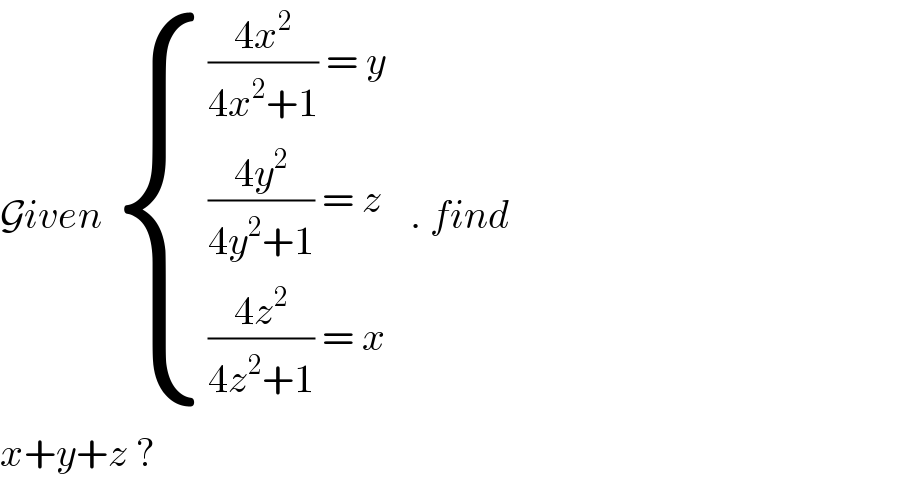
Commented by john santu last updated on 29/Jul/20
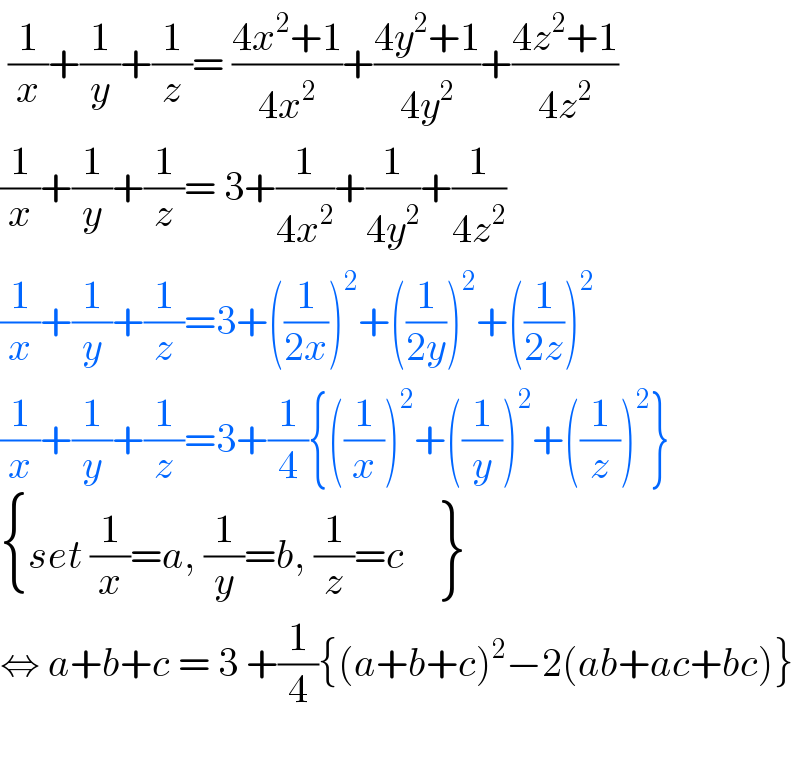
Commented by behi83417@gmail.com last updated on 29/Jul/20
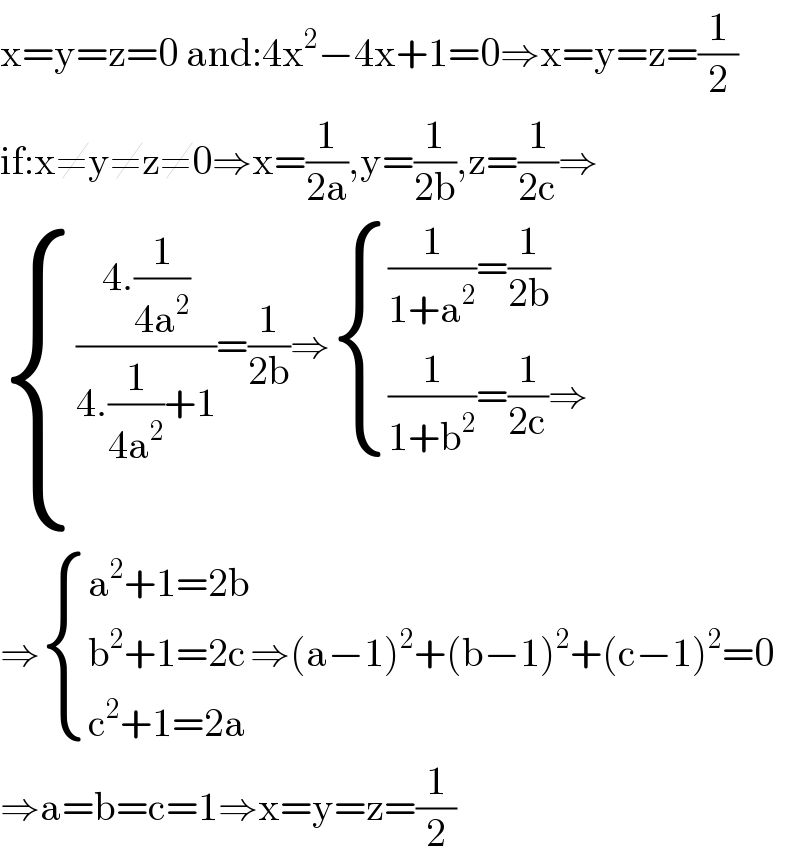
Answered by ajfour last updated on 29/Jul/20
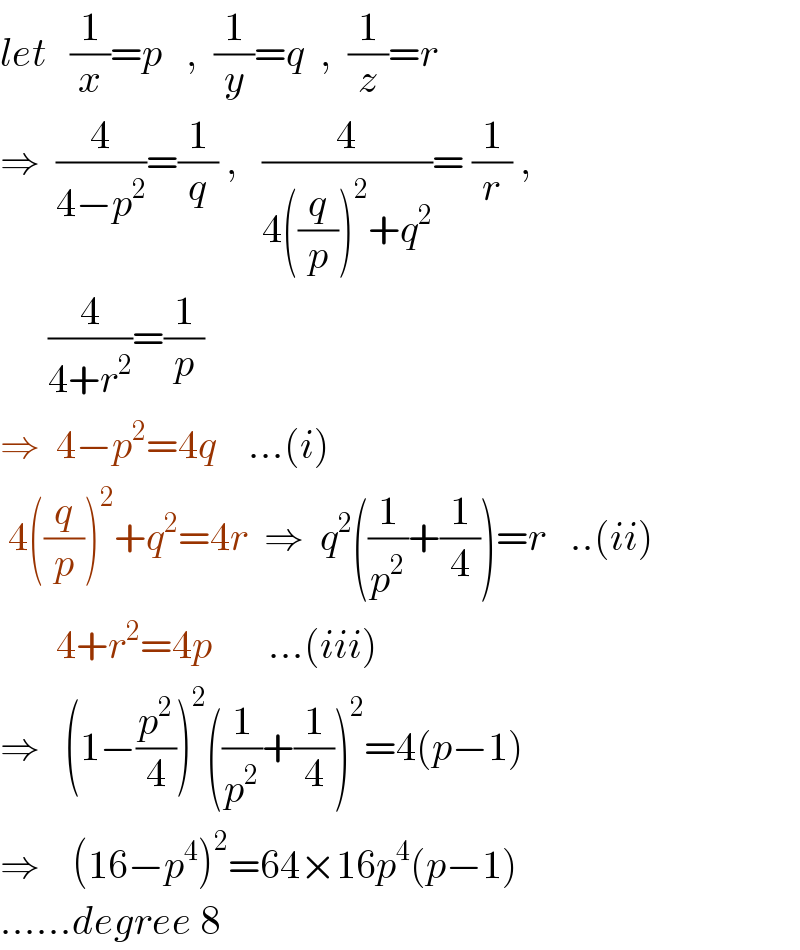
Answered by bramlex last updated on 29/Jul/20
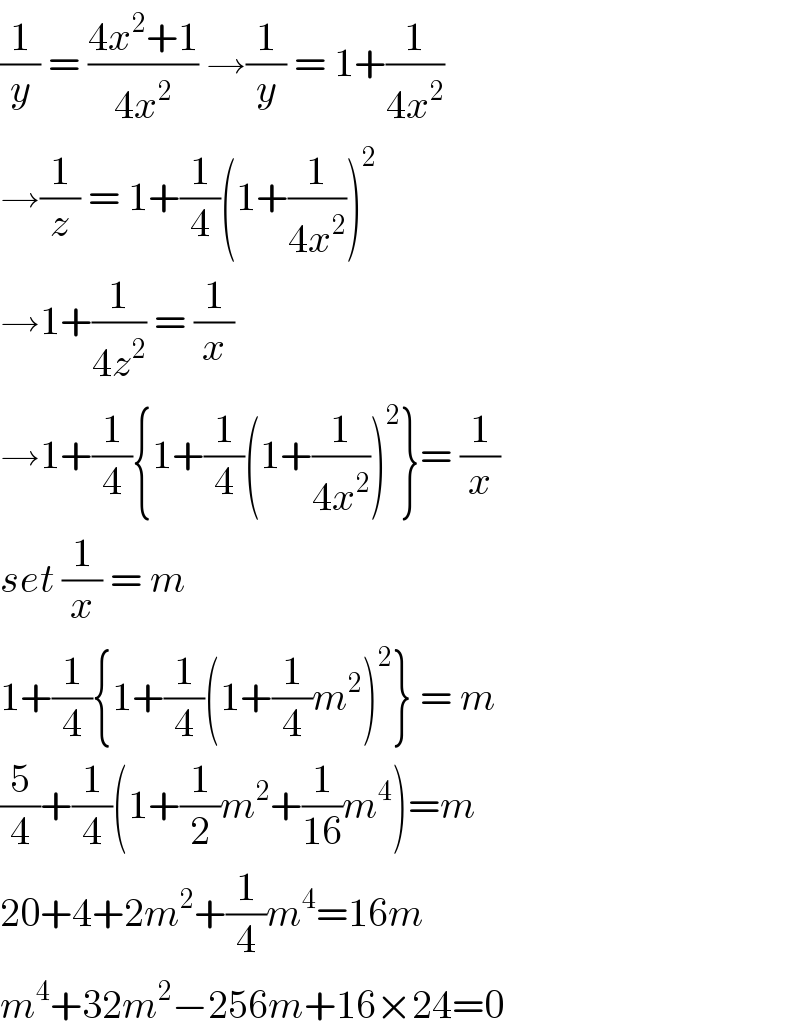
Answered by 1549442205PVT last updated on 07/Aug/20
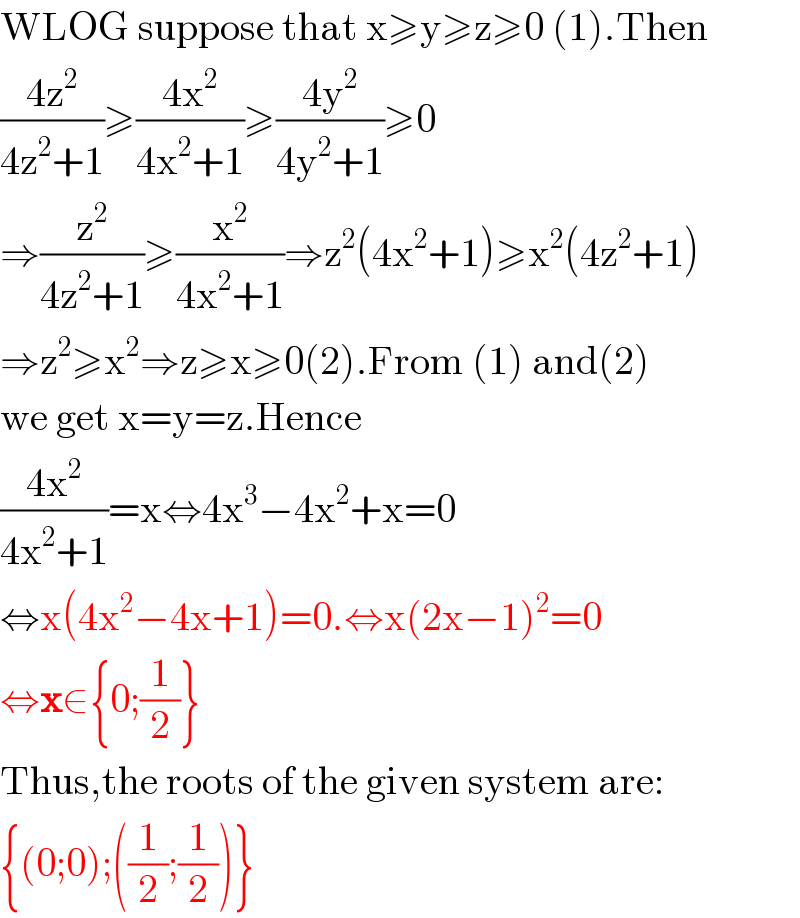
Commented by behi83417@gmail.com last updated on 31/Jul/20

Commented by 1549442205PVT last updated on 01/Aug/20

